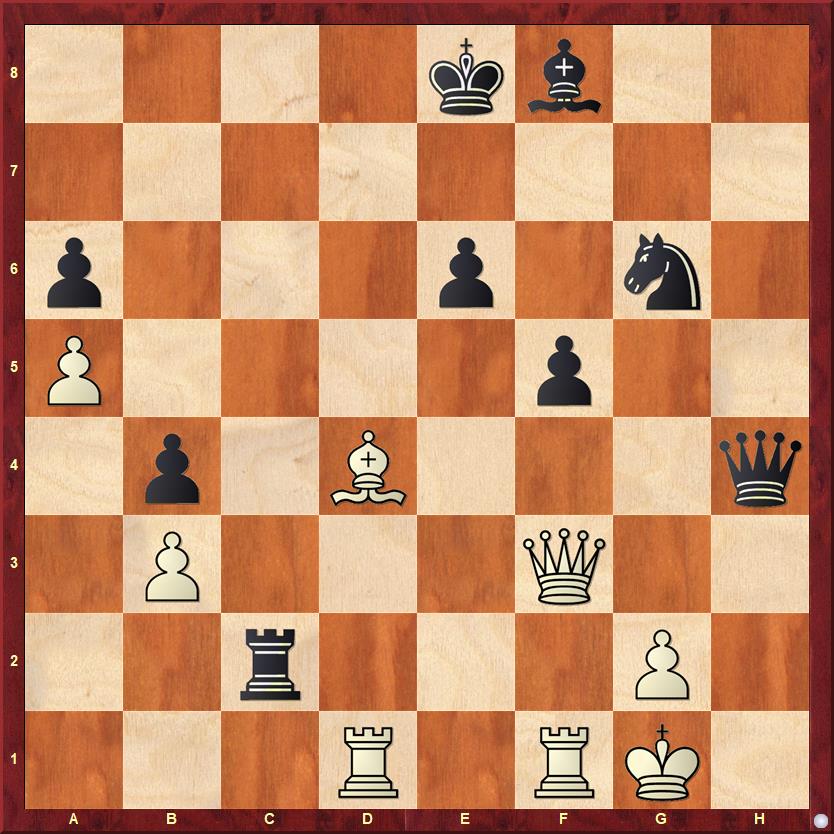Grandmaster at the age of 36 - Kevin Goh Wei Ming
He is a chartered accountant, he is the chief financial officer in a multinational organization. Kevin Goh Wei Ming from Singapore is a man in love with chess, but balanced several other things in his life. Being a child prodigy, he always had a dream of becoming a GM. But education, work life and many other responsibilities came in between his path of achieving the highest chess title. But Kevin never really gave up on his dream. He battled hard, planned meticulously and at the age of 36 years finally managed to achieve his final GM norm and become Singapore's fourth GM, the first one in 21 years! An interview with this genial champion by IM Sagar Shah.
2017 was the first time I met Kevin Goh Wei Ming. Amruta and I were on a book tour with the well-known chess author and trainer Jacob Aagaard across India and several countries in Asia. Singapore was one of our stops. Jacob's seminar in Singapore was organized by Kevin. He enthusiastically came to receive us at the airport, had made all the arrangements in a nice hotel, and the workshop was impeccably conducted with nearly 100 people attending it. While all of this was quite noteworthy, what impressed me to no end was Kevin's love for the game of chess. It was already quite late in the night (close to midnight) when everything related to the seminar was wrapped up. Amruta and I retired to our room. We had a flight to catch next day morning. But Kevin kept playing chess the entire night with Jacob.
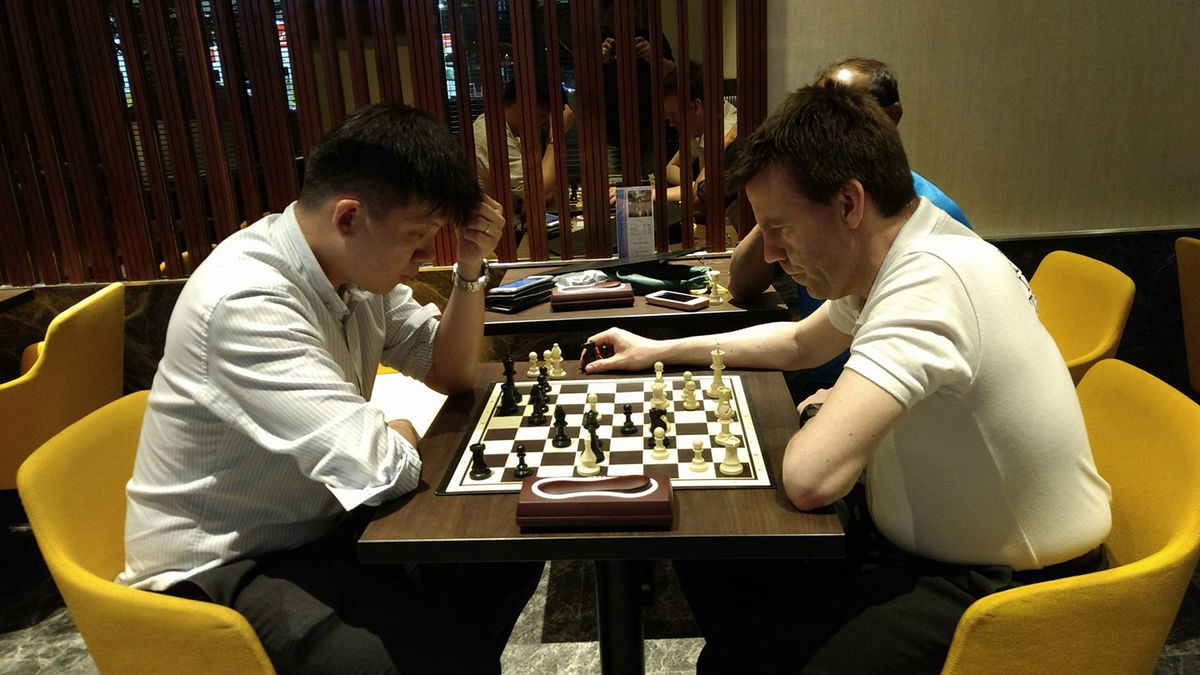
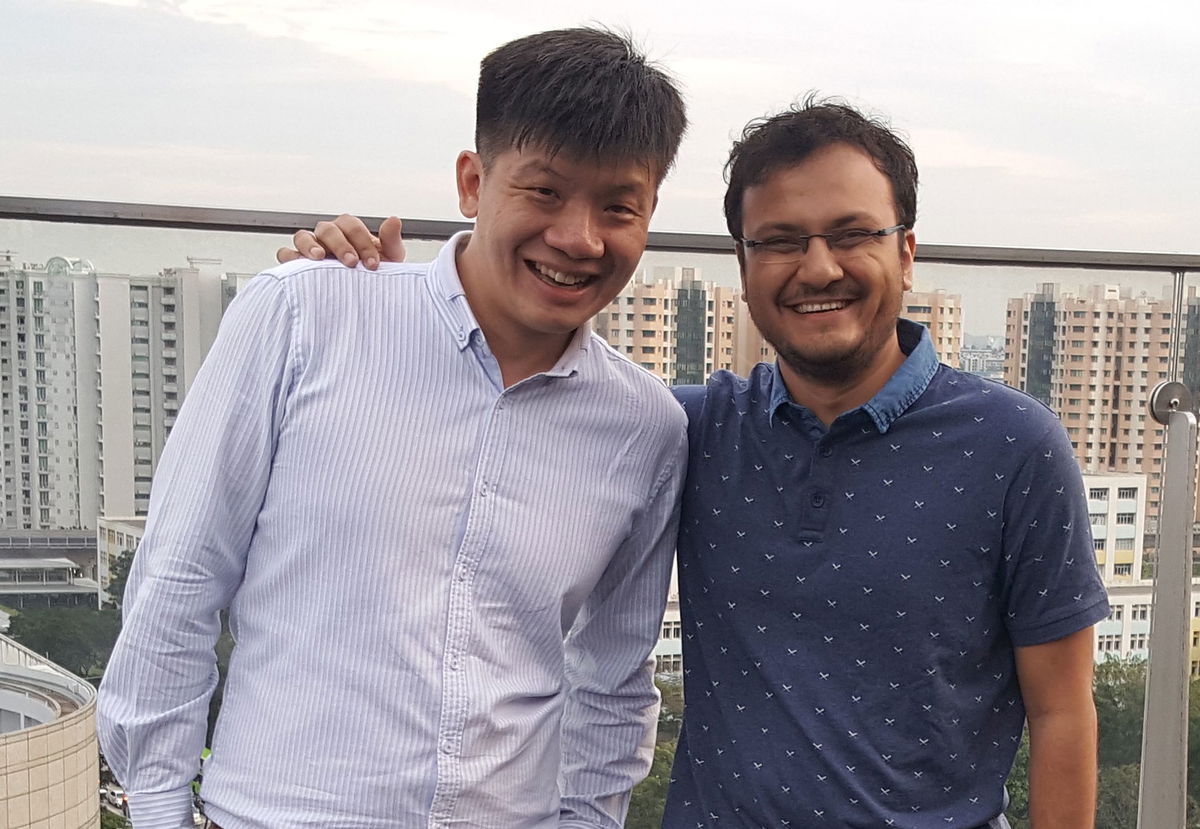
After the tour ended and I returned back to India, I started following Kevin's chess progress much more closely. Just like how I was busy with my work for ChessBase India, Kevin too had a full-time job as the CFO (Chief Financial officer) at Lucence Diagnostics - precision medicine company specialising in cancer diagnostics. With such a high pressure job, not to forget he is a married man, I was amazed at how Kevin always found time to play in chess tournaments. It somehow felt to me that he was extremely focussed on his aim of becoming a grandmaster. He would not just find time to play tournaments but also train hard for these events.
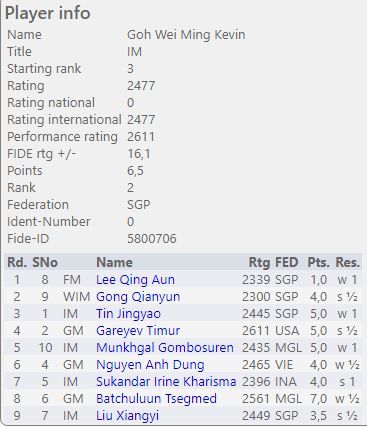
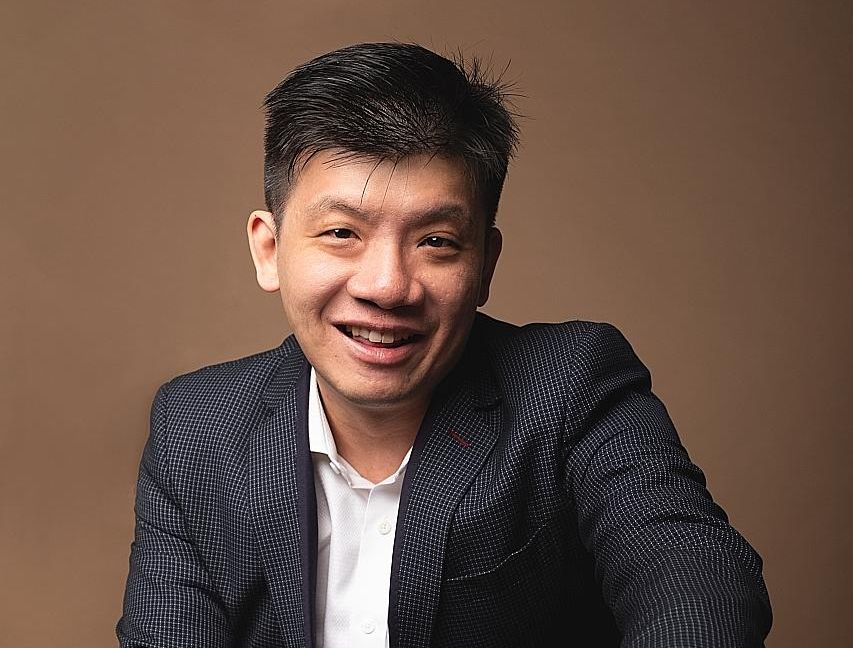
When Kevin achieved this feat, I was naturally very interested to know his story, how he managed to always keep getting better at chess, how he never lost his motivation and how he managed to achieve his GM title at the age of 36 years! The interview below is the result of that inquisitiveness!
Interview with GM Kevin Goh Wei Ming
Sagar Shah (SS): Tell us about your beginnings in chess.
Kevin Goh Wei Ming (KGWM): I learnt the game of chess while I was schooling at Boon Lay Primary School. It was a neighborhood school through and through. For instance, it was very common to see gang fights outside the school compound on a normal school day. Then, we had an extremely passionate teacher, Mr. Khoo Geak Chong, who started a chess club. Chess quickly became the number 1 sport in the school. We won many team and individual championships across various age groups and pride ourselves on the fact that we could compete against the better known schools. Thanks to the harmonious team spirit and culture that was cultivated over many years, my teammates and I became very close friends.
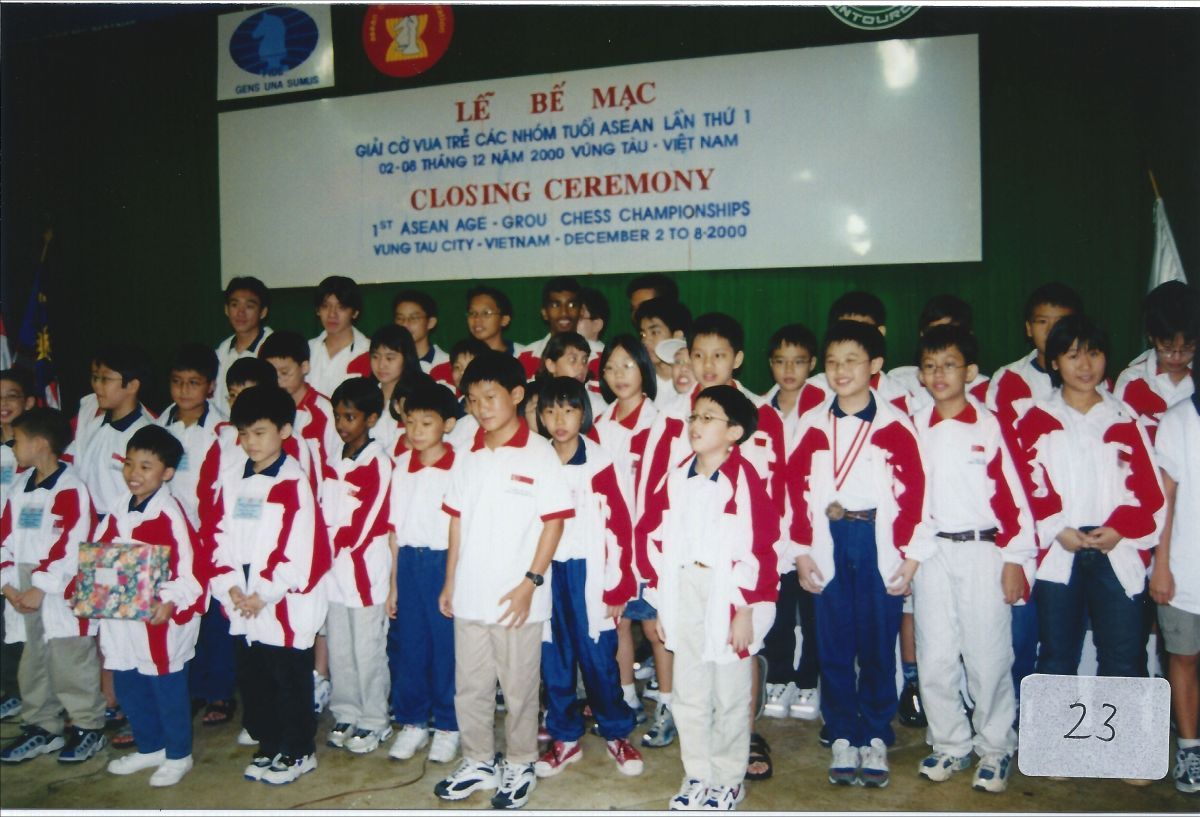
I was really competitive as a kid. I would make a list of players whom I have played and beaten in my class and after I was done with them, I would start making a list of the next class and so on. A little bit like Arya Stark's list if you know what I mean (Game of Thrones reference) but it worked because very quickly, I became the number 1 player of my school. Then, many players from Boon Lay Primary School graduated to another neighborhood school, Commonwealth Secondary School. The camaraderie continued there and chess continued to be really enjoyable.
SS: Who were your first trainers?
KGWM: My first trainer would be the afore mentioned Khoo Geak Chong, or affectionately known as "Khoo". He is probably around 1700 level but because of his aggressive style, all his students became attacking, tactical players. Every time he blitzes, he would say something like "I really want to sacrifice something...how can I sac a piece here".
Another story I could remember was that on a fine Saturday morning, he took it upon himself to teach a few of us how to win with King and Queen vs King and Rook. He made us repeat the positions many times and finally when he was convinced that we understood what he was saying, he had spent so much time that the school guard had mistakenly locked the doors and gates. Eventually, we had to call the police and had to climb down a long and flimsy wooden ladder in order to escape.
SS: What were some of the biggest successes of your youth chess career?
KGWM: I won many tournaments at the National Age Group level, and also once won the gold medal at the very first Asean Age Group U-18 championships. I would say winning these events came at a price, as I became complacent and thought too highly of myself. It was only when I participated in major open events that I realised that the standard of chess is a lot higher out there, and that it is very important not to take yourself too seriously.
SS: When you began your chess journey there were no GMs in Singapore. With almost no chess culture in the country, how did you manage to improve?
KWGM: I think it is possible to achieve the IM title by working independently with books and a bit of guidance here and there, but the leap from IM to GM is a whole lot wider and much more challenging. The difficult thing for me is that I had many bad habits which I could get away with below the GM level but you get caught on these things when you are trying to make GM norms. For instance, playing over-ambitiously when the position on the board demands a different approach, no structured way in terms of preparing for an opponent, no pre-tournament preparation such as working on calculation and tactics, having a dubious opening repertoire designed to trick opponents etc. etc. are just some examples.
SS: In Singapore education is considered to be very important, when does the pressure start growing on the youngsters related to education?
KGWM: I would say, it starts from a very young age, let’s say pre-school. Because of the increasing affluence in Singapore, Singaporean parents understandably want their kids to have a headstart in life. We have a colloquial slang for this, “kiasu”, which is hokkien for “scared to lose out”. You see very young children being signed up for every sort of lesson imaginable and not just in studies!
SS: How did you deal with it?
KWGM: It was easy for me – chess is my life and my parents have never pressured me into giving up chess at any point of my youth. But maybe this wasn’t the best since my results dropped quite dramatically. I was among the top 5 students when I was in Primary 1 but my results just sort of went downhill after that........
SS: You said you did Bachelor in accountancy and then within a week of studying you could appear for CA exams. Is Bacc (Bachelors in Accountancy) a very difficult course?
KGWM: I would say Bacc is a challenging course, but I could say that for most university courses in Singapore. The plus side is that we do not have too many Indian scholars competing with the locals at the time, most Indian talents tend to take on engineering courses and I’ve heard many stories from my friends how they would ace every exam without breaking a sweat! Finding a job upon graduation is quite competitive though, as the Big 4 accounting firms have lots of options and you have to find a way to stand out.
SS: How was your experience working at KPMG?
KGWM: Overall, it was a fantastic experience as I learnt a lot during the time and it served as a foundation for me in the later years. Of course, KPMG has been extremely supportive in my pursuit of the GM title and I will always be grateful to them for that.
SS: Tell us about your work at Lucence Diagnostics? You are the CFO there, which is quite a huge responsibility. How were you able to manage your chess doing your work?
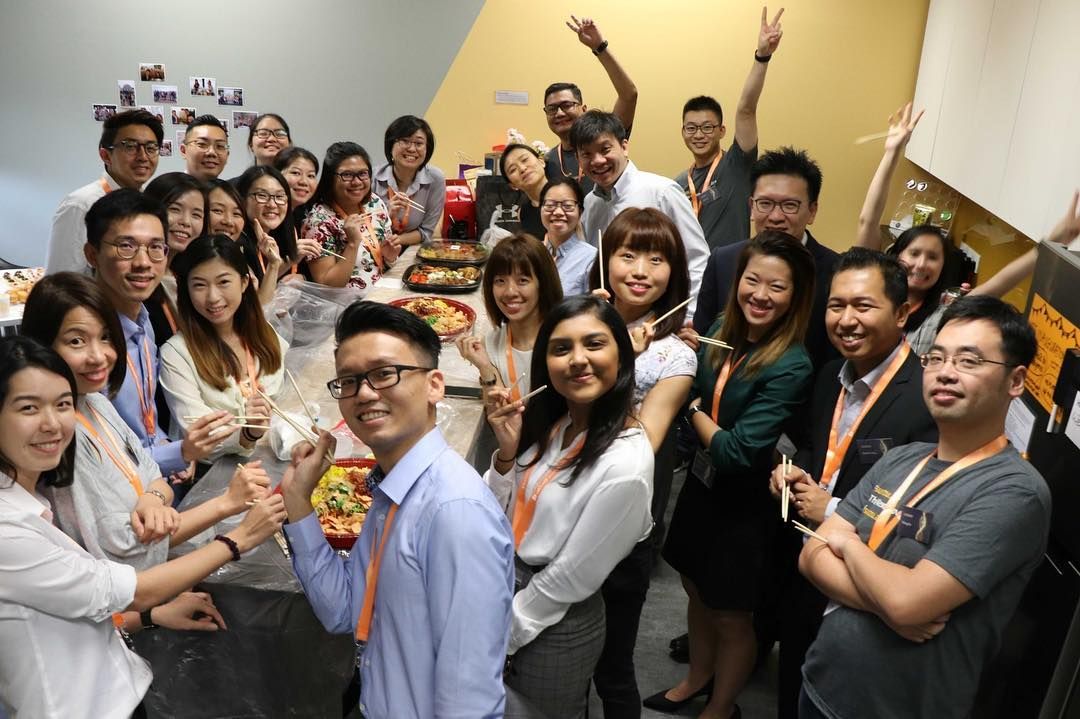
KGWM: I think it was about managing expectations from both sides. I was expected to take my own annual leave and only play in tournaments when there is no critical project that is ongoing. For instance, we had a fund raising in 2019 and I was to assist the team in completing the fund raise by October. As such, I only registered for tournaments in December! It was fortunate that timing wise, everything seemed to pan out and we were able to close our Series A fund raising of about US$20m in early October and I could play 3 tournaments in a row in peace.
It is definitely important to manage time properly and consider all your options on hand. For instance, I signed up for 3 back to back events in a row at the Third Saturday GM norm events in Serbia mainly because of time limitation. I do not have enough leave to spend travelling from city to city and it just makes sense from a practical point of view. True, closed or semi-closed events are not as glamourous as big opens and it would be more interesting to visit different cities but at some point you need to be practical in your decision making and decide for yourself which is more important, having a holiday, or making GM!
As for tournament prep, I think there is not much one can do apart from squeezing out some time on weekdays, a half hour here, a one hour there to do some work on chess. I dedicated my entire weekends for a couple of months before my trip in December and I think that sort of intensity during the training sessions helps a lot.
SS: When did you begin working Boris Avrukh. How did working with him help you?
KGWM: In 2010, I decided to take a year off work to see whether I have the potential to reach the Grandmaster level and I engaged Boris to provide me with some insights. Back then, he was already extremely famous due to his 1.d4 repertoire books for Quality Chess and I reached out for his help after reading about his coaching abilities.
Boris taught me how to be structured in opening preparation and provided high level insights to these positions, what to look out for, what are the potential risks, when to, and when not to trust engines. He is the first person who told me that Black is always "worse" in the Grunfeld because the engine evaluates the passed d5 pawn far too favourably but we all know that on many occasions, a nice blockading knight on d6 may provide sufficient compensation. With his guidance, I made my first GM norm quite quickly in 2011, had a few really good chances to make a second norm, nearly qualified for the World Cup and made a second norm in 2012.
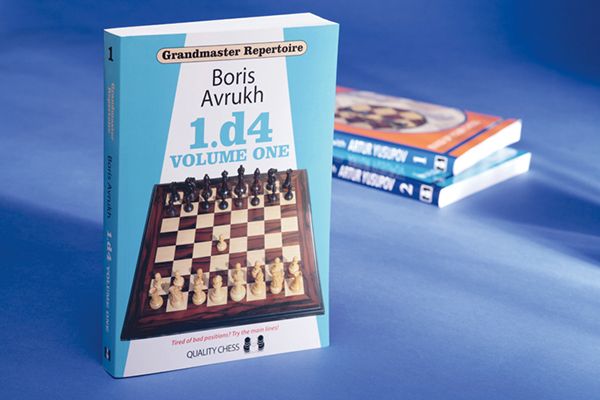
SS: You have also credited Avetik Grigoryan for helping you get better. What was his role in your chess journey?
KGWM: I got in touch after seeing a few adverts on Chessmood appearing on my FB feed. To be honest, I was not familiar with him initially and had to do a bit of CSI to read more about him. The one thing I noticed when going through some of the sample video was his optimism - he was always talking about how viewers can "crush their opponents" with some of his recommended opening lines! I have to be honest with you - as an auditor by training, I was incredibly skeptical when I see such claims but I took the plunge and booked a quick meeting with him to see if we could work together.
And almost immediately, I understood why he was using such powerful language in his videos - the guy's enthusiasm and energy level is unlike any of the other coaches that I have seen before. We worked a lot on calculation together on weekends, as well as opening preparation for a 2-3 months period. Some of our training sessions went up to 6-8 hours and he told me once that his wife complained that I was seeing him more than her! :) I get the sense that if you have a concrete goal and are willing to work hard to get there, he will do everything within his means to help you get there. I am very grateful to both Boris and Avetik who have played incredibly important roles in helping me get to where I want to be.
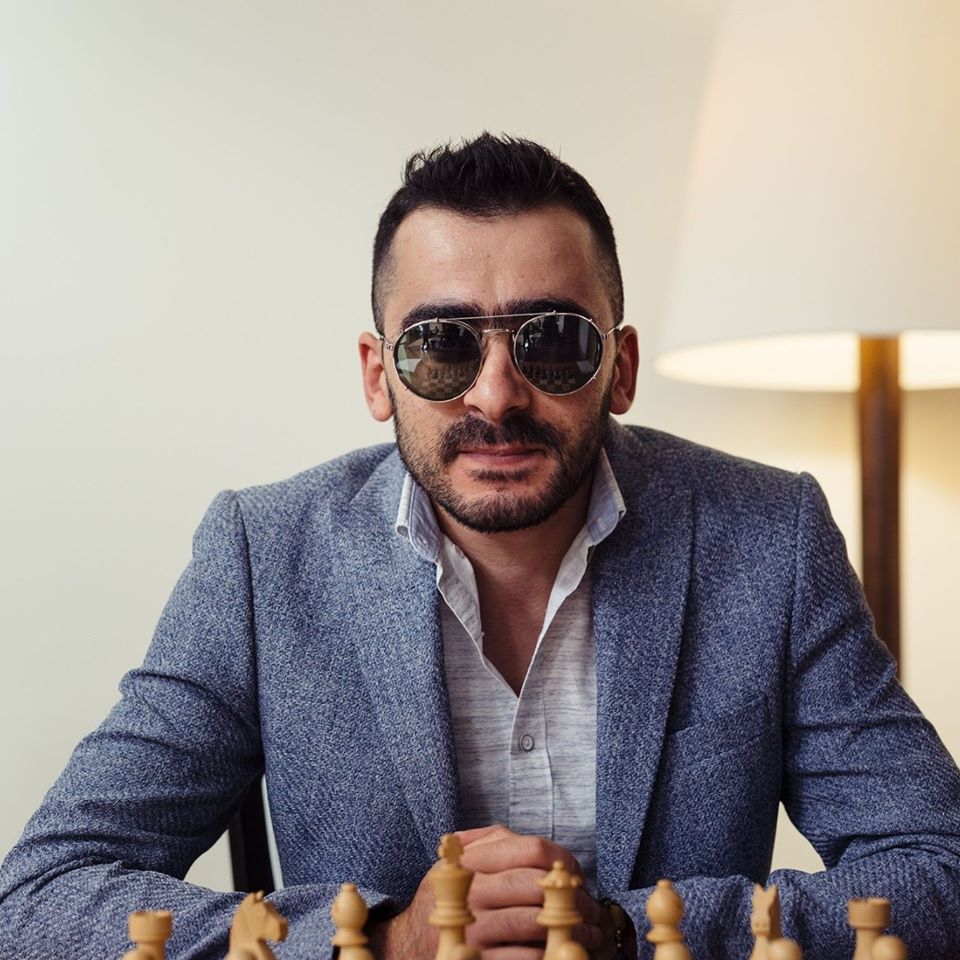
SS: In recent years you could hardly play tournaments, yet when you went out there you more often than not gave great performances - GM norm at the QCD event, 2745 at the Serbian round robin tournament. How are you able to maintain such a high level of play in spite of not being in touch playing wise.
KGWM: Ah, but you have not seen my awful performances? I am extremely inconsistent, and normally I need 1-2 warm up events before having a shot at playing well in the next one. Sometimes, I speed up the warm up process by playing tons of training games and to that, I have GM Andrey Kvon and IM Hsu for sacrificing their own time for me on so many different occasions.
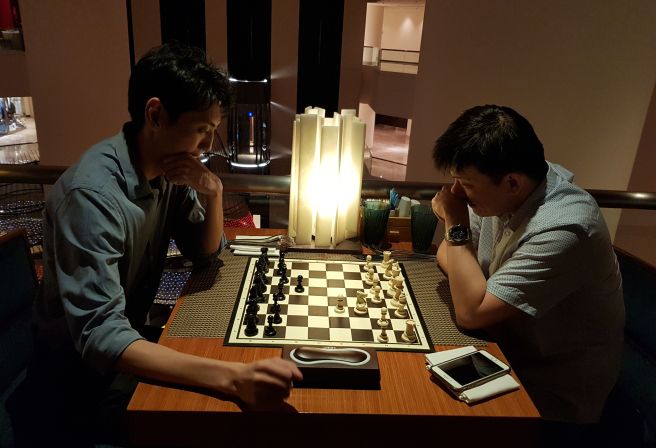
SS: Who are the other chess people you would like to thank for your GM title?
KGWM: I will like to mention a few important chess players who have provided me with a lot of guidance over the course of the last 2 decades. GM Zhang Zhong, a truly world class player who has given me loads of advice and also helped me prepare for crucial games during important team events. He is a model athlete and loved playing for the Singapore team and his games are always entertaining to watch.
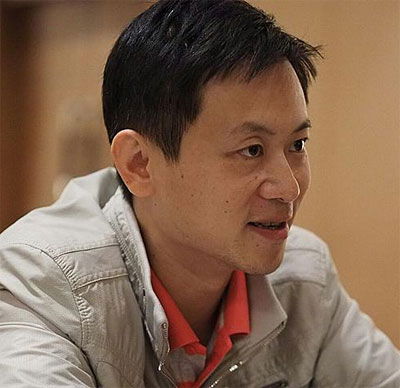
IM Hsu Li Yang, or commonly known as the Legend in Singapore. He is one of my chess idols while growing up as a kid but between saving lives and playing chess, he made the easy decision to retire from the game and focus on his career in medicine. After hearing about my mission, he came out of retirement and played a series of training games with me. Not surprisingly, I won the first 5 games but thereafter I struggled badly in every game and now I find him a formidable opponent in every time control. It transpired that Li Yang analysed my games thoroughly, identified my weaknesses and crafted an opening repertoire specially designed to target those weaknesses. Given his busy schedule, this is really a tremendous effort and really helped me a lot.
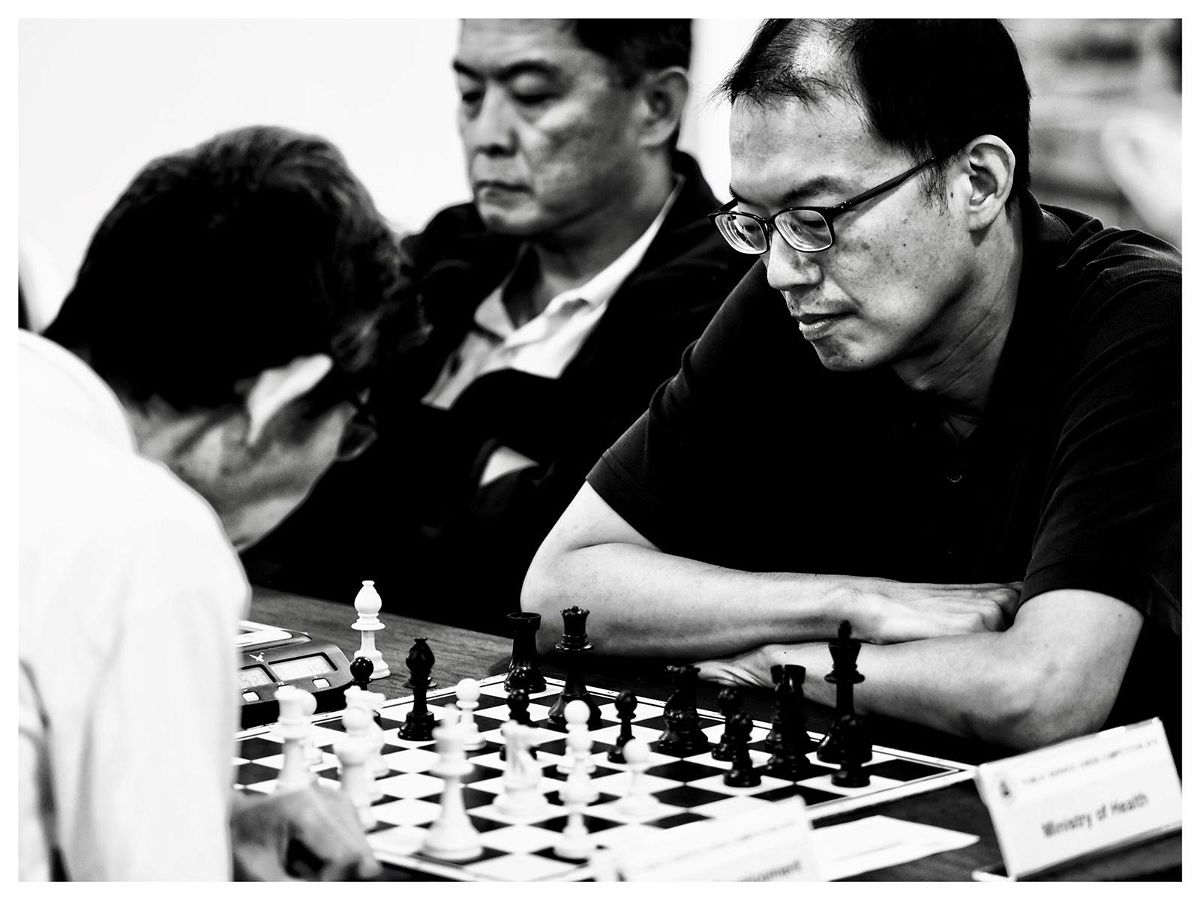
Lastly, one of the finest chess coaches in the country and popular book author Junior Tay. I remember that back when I was in the army around the year 2003, he called me up and said he wanted to pass me some chess materials during one of my nights off. We met for dinner and he shoved me a stack of chess notes and asked me to study them. It was a huge chunk of his personal materials on opening theory and I devoured the notes every evening after the day's work was done. I did not have a computer at the time and have never heard of things like ChessBase, TWIC or whatever. Hell, I did not even have an email account!
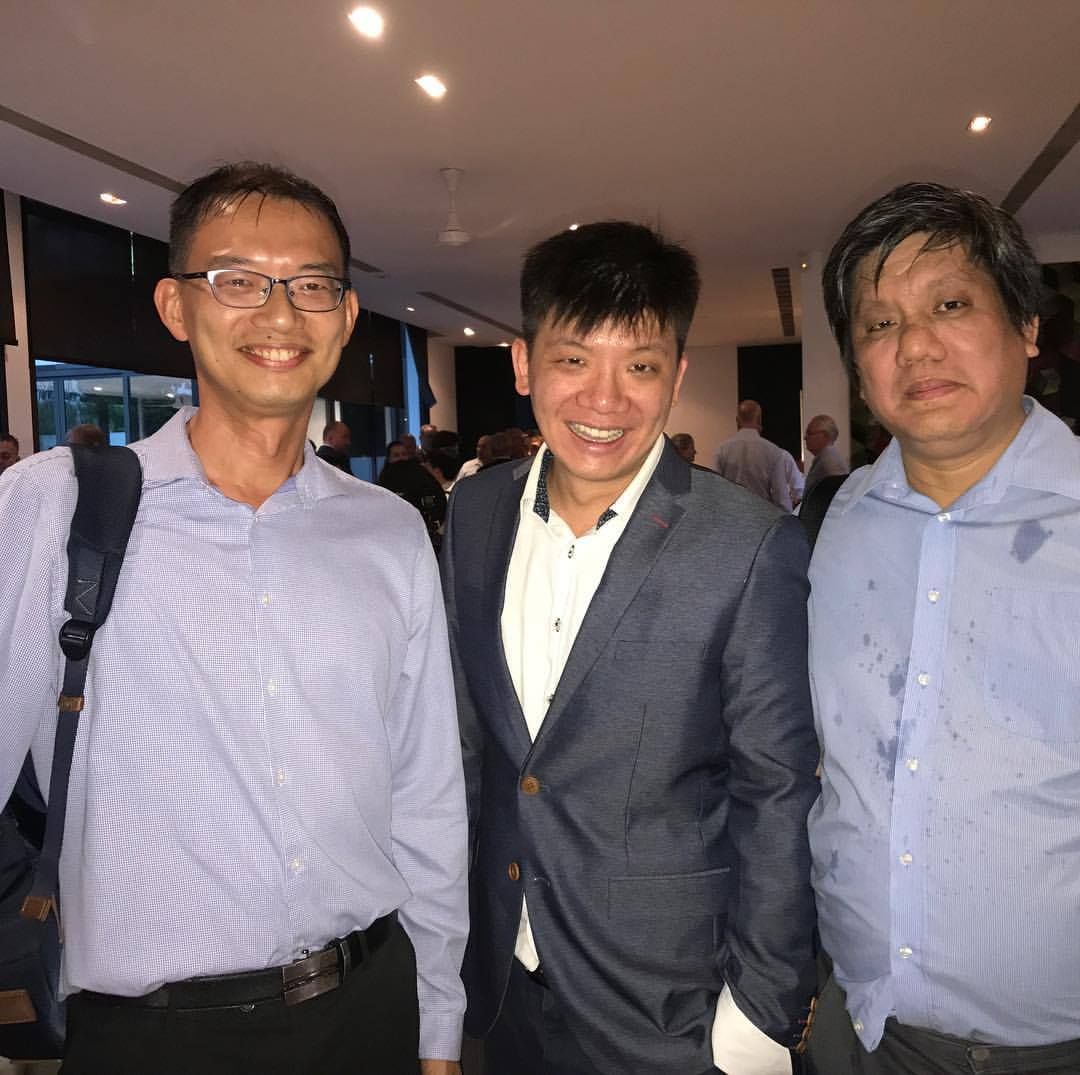
After I enrolled in University, Junior started introducing lots of chess related resources to me, such as ICC, playchess.com, chesspublishing.com, New In Chess and many more. It is very normal that he would pass me a book that he has finished reading and tell me what is interesting about the book and what opening lines to look at. He rekindled my interest in chess and I started doing lots of analysis with him when I was studying, sometimes until the next morning and I would forget about lessons and just sleep until all the classes are over....Even now, he is extremely up to date with the latest trends and I am still getting recommendations and ideas from him. I would be nowhere close to the level I am without his incredible energy and selfless sharing. You may want to check this article written by Junior Tay on what it takes to become a GM.
Lastly, I would like to thank Olimpiu G Urcan, who is one of the world's premier chess historians. He likes to keep a low profile so I'll just say that I spend way too much time with the guy!
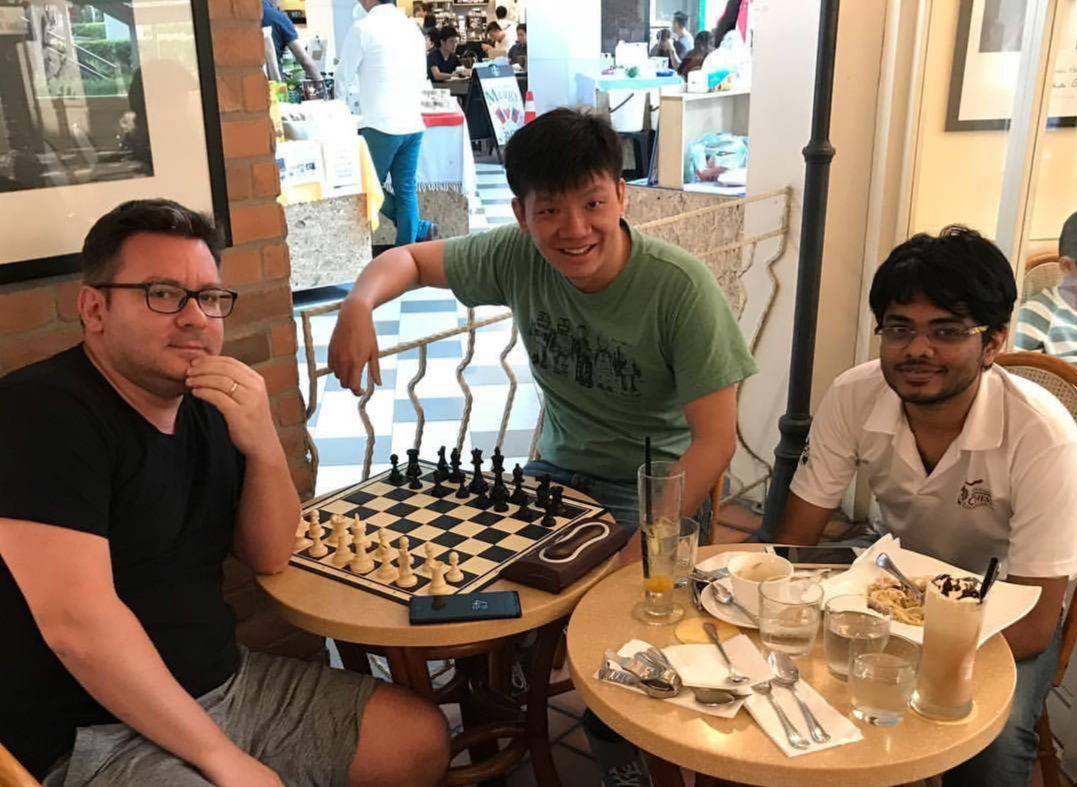
SS: What do you have to say about the current chess situation in Singapore?
KGWM: I can see many young players taking a keen interest in chess but our chess community in Singapore is best explained as fragmented. Many issues arose due to unnecessary and frankly nonsensical politics which have no place in chess or any other sport. To put it bluntly, I think our chess community needs to take a long hard look at ourselves and think through why Singapore chess has more or less stalled for the past decade. We have very few promising young talents coming through and the handful we have had, have a lot of parental support and are not considered “within the system”.
I have a personal agenda, and it is the agenda that all chess fans in Singapore can relate to, and that is that I wish one day Singapore can compete on a level footing in the World's biggest stages in chess. Without sorting out all these internal issues however, I find it hard to believe that we can ever get better.
SS: Which is the most favourite game of your chess career?
KGWM: It would have to be my win against GM Ma Qun, which I have annotated specially for ChessBase India. In order to beat someone who outrates you heavily, you normally have to have several factors going in your favour - i.e. spot on opening preparation, opponent having a bad day, calculation works fine etc. and I very fortunately happened to see quite a lot during this game.
The game which made the most impact for me was my win against GM Li Chao with Black, my only win against a 2700+ player. It was a really critical game in the penultimate round of the 2012 Asian Team Championships, the match between China and Singapore. Li Chao was the Chinese number 2 at that time and it was really special to come up on tops against such a great player, in his home country at that.
There was quite a funny story behind this particular match. The night before, we held a quick team meeting and our board 1, the very strong GM Zhang Zhong had these words for us "I will play solidly and make a draw against Wang Yue. The rest of you - pls do your best and see how many game points we can get!". As the round progressed, Zhang Zhong's plan was unfolding well as he was playing really solidly against Wang Yue's Petroff. Pieces were exchanged and everyone expected a draw soon after Wang offered a draw. However, Zhang took one quick look at my game, gave me a funny look, and said "no draw!". I nearly burst out laughing when I saw the bewildered looks of the Chinese players. The game ended in a fighting 70+ move draw anyway. Later that night, I asked Zhang what that was all about and he replied "I saw that you had good chances so I decided to have a go at my opponent. I was gambling that we could both win, and we would make a draw against this monstrous Chinese team, Singapore's best result in our history!" With this critical win, I eventually won the bronze medal on board 2 and my 2nd GM norm. On the train ride to Beijing, Parimarjan Negi came to me and jokingly thanked me for helping him to win the gold medal ahead of Li!
SS: What is your advice for people who want to become opening experts like you?
KGWM: I wouldn't call myself an "expert" - its probably the strongest aspect of my chess but I am sure the pro players are far better theoreticians than me. As an amateur player however, I would recommend that you get accustomed to every single resource out there so you can utilise all these resources in an efficient manner. Also, if you are able to, an experienced coach would be very helpful in guiding you towards the right direction, or explain the key essence of the variations you play. I would also follow the high level games when I'm able to through some of these apps like chess24 or followchess and see if there are any interesting theoretical developments that are relevant to me.
SS: Can you tell us about some of your favourite books/DVDs of chess?
KGWM: I think Chess Developments, 6.Bg5 Najdorf is a very fine book and was written by a truly outstanding author..... just kidding! I'm gonna name a few relatively less known books: Luther's Chess Reformation (LCR) by Thomas Luther, and Positional Sacrifices by Neil Mcdonald are both fascinating reads that I finished cover to cover in double quick time. LCR is a labor of love and apart from being a training manual that provides loads of practical tips, we also see insights into the struggles of a physically handicapped chess player and how Thomas broke through all that pain to become German Champion. It is thoroughly inspirational.
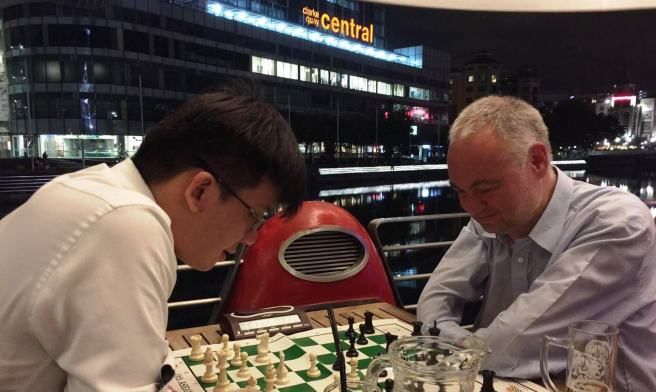
Positional Sacrifices, as the name suggests, contains loads of brilliantly annotated examples and helped me to increase my creativity and vision on how a chess game can pan out. As a kid, I also greatly enjoyed Seirawan's Winning Chess Brilliancies and Secrets of Spectacular Chess written by Levitt and Friedgood.
SS: What are your next plans, now that you have become a GM?
KGWM: I think the fact that I have struggled for so long to barely cross the 2500 mark means that I am certainly not a stable "2500 level" chess player. I remain extremely motivated to keep working at my chess in my spare time to maintain my current level, and also see if I could continue to improve. However, I also understand that I am not a spring chicken and at my age and at this stage of my career, I need to be practical about things and prioritise my time accordingly. I would also like to work with some of our best young talents and make sure they don't repeat the same mistakes that I've made but I will need to see how I can manage my time well, as well as deal with the potential politics involved.
SS: Do you follow ChessBase India? Do you enjoy its content?
KGWM: I am saying this not because I am being interviewed here, but I really feel you and Amruta have done an absolutely amazing job. I follow CB India's posts daily and have encouraged my friends to do so. Even though the coverage is predominantly Indian players centric, there is a lot of value and insights that can be gained especially when the elite Indian players often share unreservedly on this site.
SS: What is your advice to people who want to have a successful professional career outside chess, and yet want to keep improving at the game.
KGWM: 1) Set a goal, a realistic one, and understand the motivation behind this goal.
2) Have a plan, and stick to it. Ask for advice on how that plan should look like.
3) Always ask for help and guidance - we are human and we don't know everything there is.
4) Be humble, and be upfront about your weaknesses. Don't be defensive over your weak moves and try to understand how these moves occured in an objective manner. You probably didn't lose the game because you blundered a winning position in 1 move. Then, do something about it. If you know you are weak in tactics, then solve more positions. If you have trouble against the Catalan, find a coach and fix it once and for all. Don't look for short cuts, you are bound to fail. Chess is an inherently tough game and its easier to embrace that.
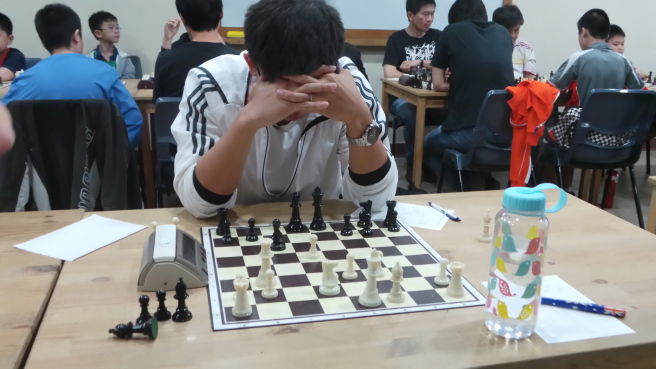
SS: Lastly, with the Covid-19 situation, what according to you are the biggest issues when it comes to internet chess in your opinion?
KGWM: I think without a shadow of a doubt, engine assistance, or also known as cheating. I think all federations and associations should undertake a firm stance against cheating of any sort, and implement stringent anti-cheating measures. Taking a lax stance is a sign that you are condoning cheating, which is not much different from defrauding someone of a fair game. So far, I think the National Chess Federation of the Philippines has done very well in their treatment of cheaters who were caught by various chess servers but more can be done by the chess community as a collective unit.
Also, to a lesser extent, internet trolls or arm chair warriors are aplenty. I have my fair share of trolls and haters over the years and after a while you get used to the abuse and bullying behavior and brush it off nonchalantly. Normally there will be some form of retribution for this small group of people eventually so my advice is to do your best to shut out this noise and not allow such things to distract you from what truly matters.
I once saw a friend (a strong International Master) who was trolled and insulted by a random player and he completely lost it on a live chat on a popular chess server. I think there is a small group of amateur players, armed with their chess engines who are very eager to downplay the achievements of those who have achieved mastery of some sort and its important not to take these people too seriously.
Some more chess with Kevin Goh Wei Ming
"I was very thrilled when I knew that Gyula Sax would be one of the Grandmasters playing in the GM tournament in Kecskemet. Even when I was still a patzer at the age of 12, I have already heard of him and knew that he was one of the top 20 players in the world. I wasn't aware that he was also a Olympiad gold medalist with Hungary in those days. In any case, my motivation for this game was doubled when I knew that I was about to play him, knowing that he was some sort of a legend in Hungary. I told myself I had to play a good game, never mind the result. If I didn't, it would have been disrespectful."
Kevin Goh Wei Ming vs Jan Krzysztof Duda, Olympiad 2016
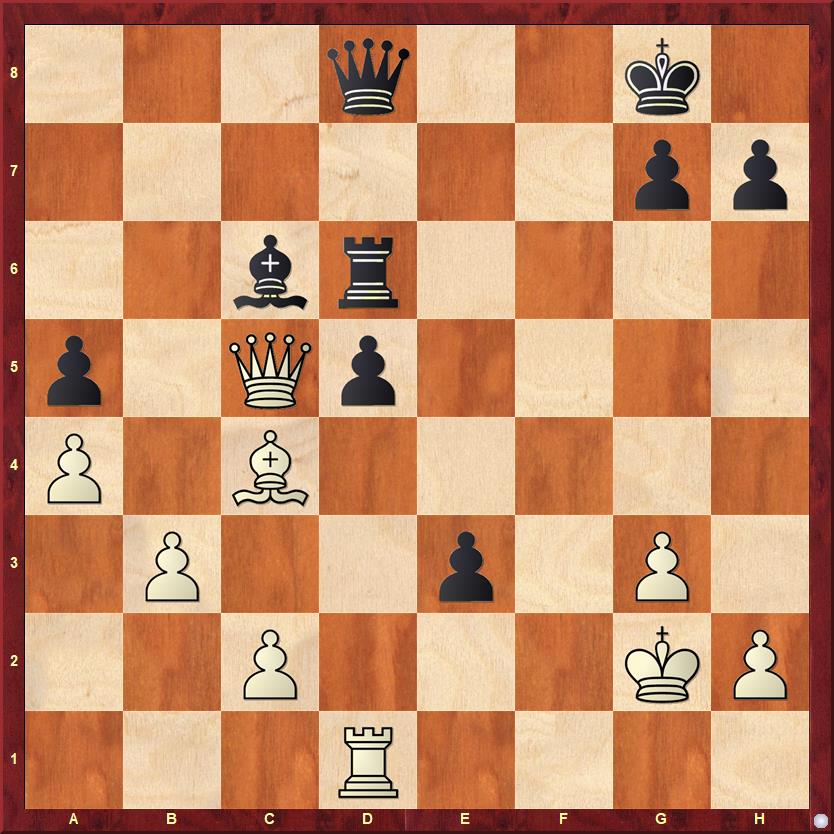
Kevin Goh Wei Ming vs Marin Bosiocic, Xtracon Open 2017
